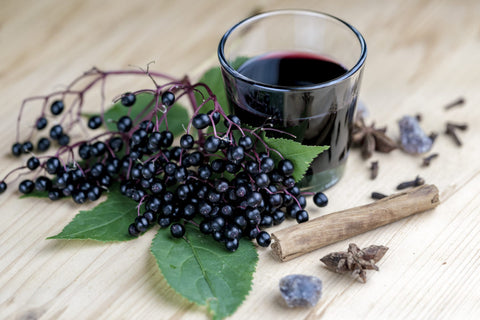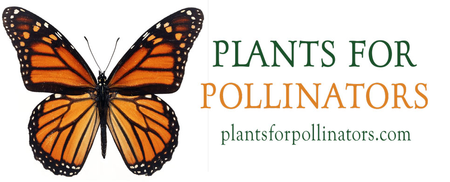
Elderberry - Nature's Immune System Booster
Elderberry fruits provide natural immunity boosting and anti-viral compounds. We are providing fresh live cuttings of American Elderberry (Sambucus canadensis) for home gardeners and herbalists to grow in their own medicine gardens. Bees and other pollinators absolutely love the fragrant, honey-scented flowers as well.
Our Elderberry Kit includes 5 live cuttings taken and shipped the same day via Priority Mail. All you need to do is open the box and stick the pointed end of the cutting into good garden soil and keep moist until the cuttings root. By next autumn you should have a healthy stand of mature elderberries with plenty of fruit to harvest and make your own elderberry tonic using a recipe like this one:

In natural medicine, elderberry has a rich history of use, addressing a variety of health conditions from vision improvement and cancer prevention to treating sinus problems, coughs, colds and viral infections, especially the flu. In regard to influenza A and B, elderberry appears to possess unique qualities that make it one of the top antiviral herbs in the world. Perhaps the volume of historical reference about the use of elderberry in treating influenza has prompted a contemporary rediscovery of its potential health benefits.
Elderberry’s anti-flu effects can be attributed to a couple of primary pathways that work in tandem. One mechanism is a complex process by which the flavonoids bind to proteins on the outside of the virus and prevent its attachment and entry into host cells, thus inhibiting the ability of the virus to replicate and spread. The second is that elderberry is believed to assist in activating the healthy immune system by boosting the production of cytokines, which are essentially messengers that help regulate the body’s immune response to disease. In essence, elderberry targets the virus itself while simultaneously boosting the natural defense mechanisms of the body.
The results of numerous scientific studies appear to support the remarkable antiviral properties of elderberry. One study in particular, published 2004 in The Journal of International Medical Research, has attracted the attention of many in the conventional medical community. This randomized, double-blind study was conducted by a medical school in Israel on sixty patients between the ages of 18 and 54 who were identified in the early stages of influenza infection (within 48 hours of symptom onset). The active treatment group received 15 ml (1 tablespoonful) of elderberry syrup four times daily for 5 days, versus a placebo group which received a syrup identical in every way minus the elderberry extract. The efficacy of the treatment was evaluated by overall wellness as well as specific symptom assessment. The symptoms assessed included: aches and pains, frequency and degree of coughing, mucus discharge, nasal congestion, and quality of sleep.
The results were significant. The elderberry group achieved a designation of “pronounced improvement” after 3 to 4 days while the placebo group only reached this level after 7 to 8 days. Both groups of patients were fully recovered from symptoms after eight days.
